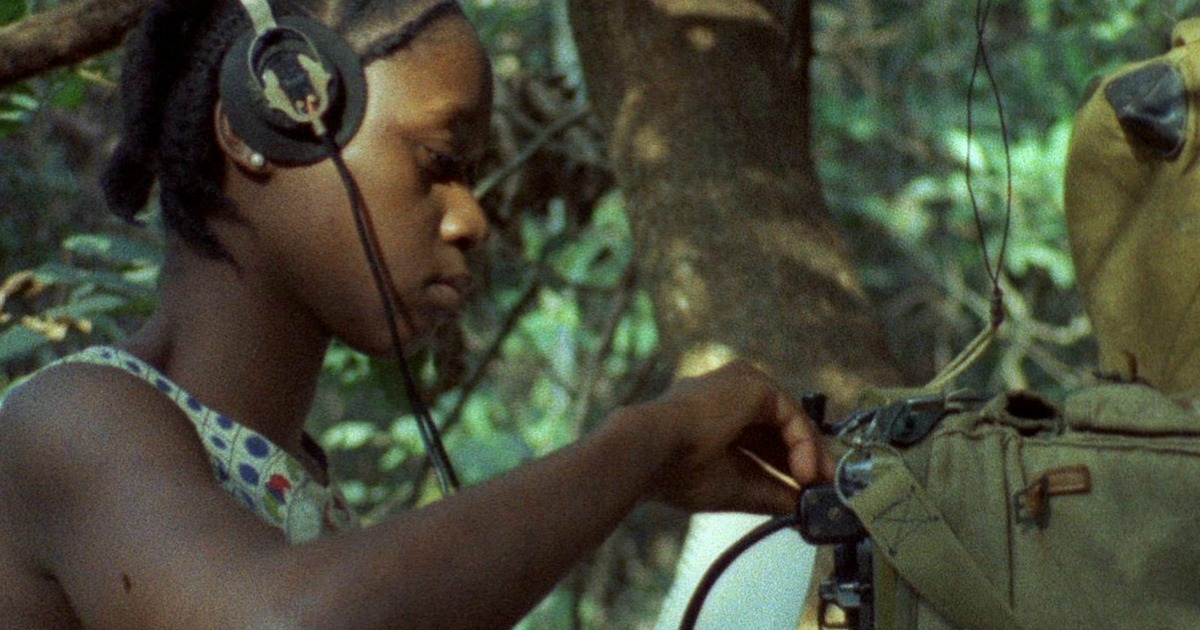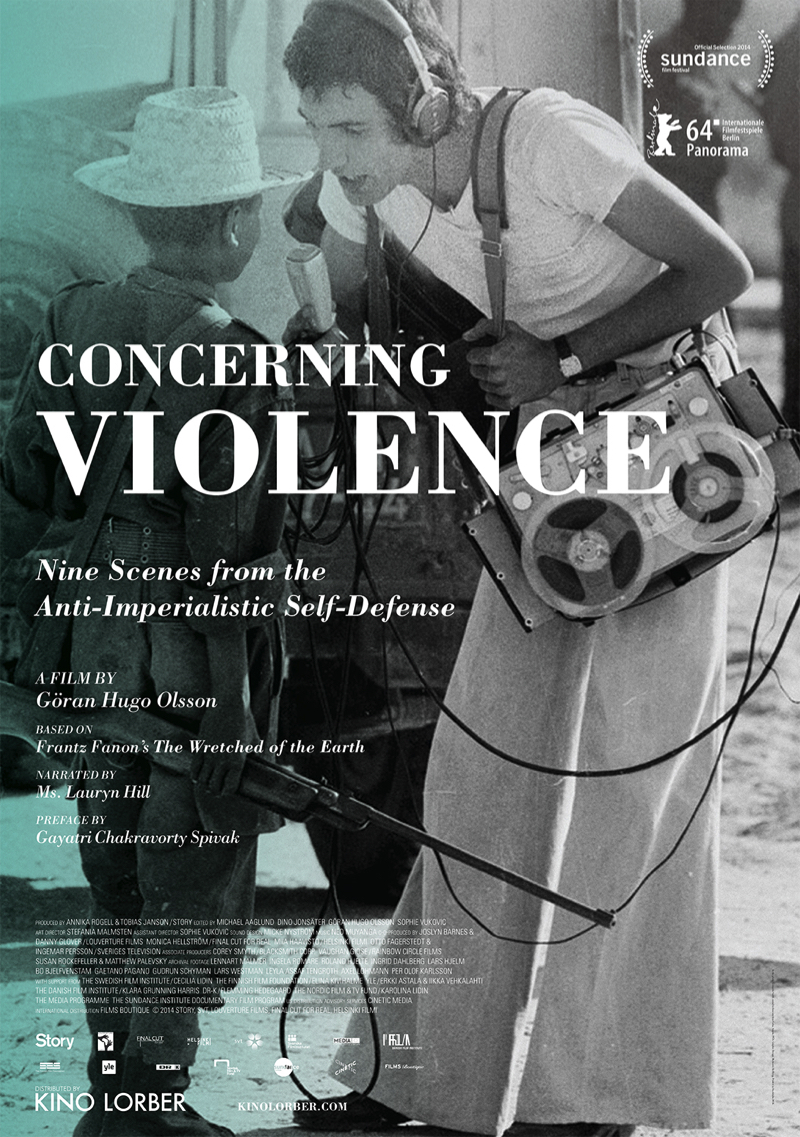
Films come in all shapes and sizes. Be it the experimental art of a Stan Brakhage or the science films of Jean Painleve, the bits of philosophy from Jean-Luc Godard or the broad reaching prestige stylings of one Steven Spielberg, cinema is as broadly reaching an artform as they come. And yet, few will be able to say they’ve seen anything quite like the latest film from one of today’s most intriguing non-fiction filmmakers.
Best known for his last film, The Black Power Mixtape, director Goran Hugo Olsson is back with yet another confounding bit of experimental essay cinema. Entitled Concerning Violence, Olsson’s latest looks at the exploitation brought upon by colonialism and in a much broader sense general geopolitics, and is as singular a piece of cinema as we’ve seen all year. Narrated by beloved musician Lauryn Hill, the film uses Frantz Fanon’s iconic 1961 piece The Wretched Of The Earth as Hill’s script in order to paint a picture of a world where Europe and ultimately the US use their powers to abuse and exploit the natives in their colonial lands. Blending Fanon’s text with Hill’s bombastic delivery and archival footage from areas like Ghana, Liberia, Rhodesia and Guinea shot during the ‘60s, ‘70s and ‘80s, Concerning Violence is a haunting, timely and unforgettable piece of cinematic experimentation unlike anything you’ve ever seen before.
Almost halfway through the film, we hear Hill deliver what may be the film, and ultimately Fanon’s, main thesis. “All that the native has seen in his country,” Hill proclaims, “is that they can freely arrest him, beat him, starve him,” which sums this film and its core theme perfectly. As we see throughout the film’s nearly 90 minute runtime is a time and place where capitalism was not so much an economic ideal as a weapon of mass cultural destruction. This isn’t a film that’s mincing words. Hell bent on inspiring not so much conversation as sociological discourse, Olsson’s film is a triumph of filmic philosophy, able to be as much an enveloping documentary as it is filmed college lecture.
That being said, it’s not everyone’s cup of tea. Very much in the mold of the aforementioned filmed lecture, the film is a confrontational bit of geopolitical discussion that jettisons a narrative for simply mining a theme or a topic. The runtime, 88 minutes, won’t make for the most difficult of watches and Hill’s voice is commanding and rapturous, but the style and the esoteric nature of Fanon’s writing will make for a tough watch for some.
However, this is a must watch. Not just for cinephiles. In a world where power is being used in vicious, vindictive ways, this is a film that is one of the most culturally significant pieces of art in quite some time. While this doesn’t make for a perfect comparison to today’s political and sociological landscape, with the events in Ferguson still in the mind of this entire nation, a bit of commentary like the one mentioned above helps make this something more than a film. Something more than a documentary. Something more than art. This isn’t a cinematically important film. It’s culturally important. And is an absolute must see.




